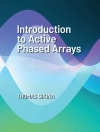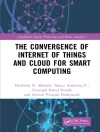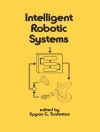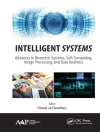This book aims to work out the distributed economic operation in smart grids in a systematic way, which ranges from model-based to model-free perspectives. The main contributions of this book can be summarized into three folds. First, we investigate the fundamental economic operation problems in smart grids from model-based perspective. Specifically, these problems can be modeled as deterministic optimization models, and we propose some distributed optimization algorithms by integrating the multi-agent consensus theory and optimization techniques to achieve the distributed coordination of various generation units and loads. Second, due to the randomness of the large-scale renewable energies and the flexibility of the loads, we further address these economic operation problems from a model-free perspective, and we propose learning-based approaches to address the uncertainty and randomness. At last, we extend the idea of model-based and model-free algorithms to plug-in electric vehicles(PEVs) charging/discharging scheduling problem, the key challenge of which involves multiple objectives simultaneously while the behavior of PEVs and the electricity price are intrinsically random. This book presents several recent theoretical findings on distributed economic operation in smart grids from model-based and model-free perspectives. By systematically integrating novel ideas, fresh insights, and rigorous results, this book provides a base for further theoretical research on distributed economic operation in smart grids. It can be a reference for graduates and researchers to study the operation and management in smart grids. Some prerequisites for reading this book include optimization theory, matrix theory, game theory, reinforcement learning, etc.
İçerik tablosu
Introduction.- Preliminaries.- Model-Based Distributed Optimization.- Model-Free Distributed Optimization.- Extensions to PEVs Charging/Discharging Scheduling.
Yazar hakkında
Jiahu Qin (Senior Member, IEEE) received his first Ph.D. degree in control science and engineering from Harbin Institute of Technology in 2012, and the second Ph.D. degree in systems and control from The Australian National University, Australia, in 2014. He is currently a Professor at the Department of Automation, University of Science and Technology of China. His current research interests include autonomous intelligent systems, cyber-physical systems, and human-robot interaction.
Yanni Wan received the B.E. degree in automation from Ocean University of China, Qingdao, China, in 2016, and the Ph.D. degree in control science and engineering from University of Science and Technology of China, Hefei, China, in 2022. She is currently a Lecturer at the School of Physics and Electronic-Electrical Engineering, Ningxia University, Yinchuan, China. Her research interests include distributed energy management in smart grids and charging/discharging scheduling of EVs.
Fangyuan Li(Member, IEEE) received the B.E. degree in electrical engineering and its automation from Southwest Jiaotong University, Chengdu, China, in 2014, and the Ph.D. degree in control science and engineering from University of Science and Technology of China, Hefei, China, in 2019. He is currently an Associate Professor with the School of Electrical and Information Engineering, Zhengzhou University, Zhengzhou, China. His research interests include distributed optimization and control in multi-agent systems and distributed energy management in smart grids.
Yu Kang (Senior Member, IEEE) received the Ph.D. degree in control theory and control engineering from University of Science and Technology of China, Hefei, China, in 2005. He is currently a Professor with the Department of Automation and the Institute of Advanced Technology, University of Science and Technology of China. His current research interests include monitoring of vehicle emissions, adaptive/robust control, variable structure control, mobile manipulator, and Markovian jump systems.
Weiming Fu (Member, IEEE) received the B.E. degree in automation and the Ph.D. degree in control science and engineering from University of Science and Technology of China, Hefei, China, in 2014 and 2020, respectively. He is currently an Associate Professor with the Department of Automation, University of Science and Technology of China. His research interests include consensus in multi-agent systems and security in cyber-physical systems.












